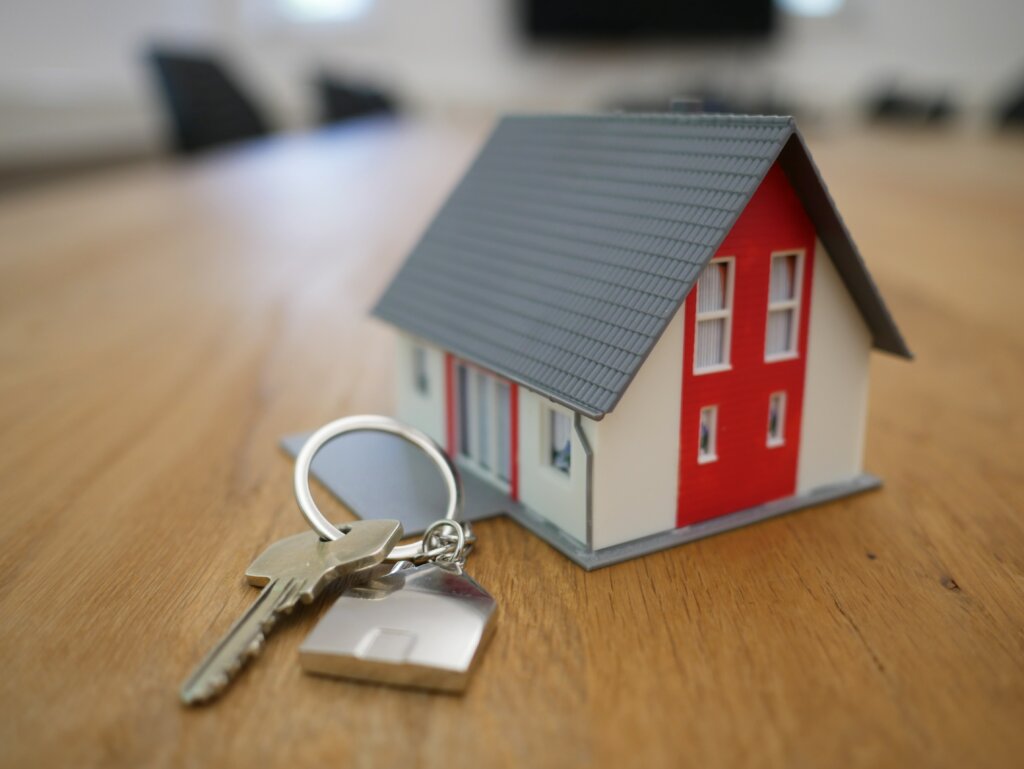
Debt can be a significant burden, weighing down on your financial well-being and limiting your options. If you’re struggling to keep up with debt payments, selling your house might be a viable solution to alleviate the pressure and create some breathing room. In this scenario, you can use the proceeds from the sale to pay off your outstanding debts, which can help improve your credit score and financial stability. Additionally, downsizing to a more affordable property can reduce your monthly expenses, making it easier to stay on top of future payments and prevent further debt accumulation. However, before making this decision, it’s crucial to carefully evaluate the market conditions and consult with a financial advisor to ensure it’s the right choice for your unique situation. In this article , we will explore the pros and cons of selling your house to pay down debt, as well as provide guidance on how to navigate this process effectively.
Common Reasons People Sell Houses to Pay Down Debt
Understanding the root cause of your debt is a crucial first step towards formulating an effective strategy to alleviate your financial burden. This involves a thorough examination of your spending habits, potential unforeseen expenses that have contributed to your debt, and recognizing external factors that might be outside of your control. Let’s delve deeper into each of these potential causes of debt:
- Poor Money Management: One of the most common reasons for accumulating debt can be traced back to poor money management. If you find yourself consistently spending more than what you’re earning, it’s inevitable that you’ll end up in a precarious financial situation. The remedy could be as simple as curbing unnecessary expenditures, or it may require a more comprehensive reassessment of larger financial decisions like housing or transportation costs.
- Unexpected Expenses: Life is unpredictable and unexpected expenses can arise at any time. Medical emergencies, major car repairs, or sudden home maintenance costs can all unexpectedly plunge you into significant debt. If you lack an adequate emergency fund to cover these unforeseen costs, they can quickly spiral out of control and cause financial distress.
- Loss of Income: An abrupt loss of income due to job loss or experiencing a significant decrease in income can heavily impact your ability to meet monthly payments, leading to escalating debt levels.
- High Interest Rates: High-interest rates on loans or credit cards can make your debts grow at an alarming rate, especially if you’re only managing to make the minimum required payments each month.
- Lack of Financial Education: A surprising number of people find themselves in deep debt simply because they lack foundational knowledge about personal finance management. Understanding basic principles like how interest rates work, the significance of maintaining good credit scores, and effective budgeting strategies can go a long way towards preventing excessive debt accumulation.
It’s crucial not only to identify these reasons but also to remember that understanding the root cause of your debt will allow you to formulate a more effective course of action when considering selling your house to pay off your debts. This identification process isn’t about placing blame; instead, it’s about gaining clarity on your financial situation and taking constructive steps towards resolving it. By understanding these causes, you can start to plan a way out of debt and set a course towards a more stable financial future.

When is it a good idea to sell your house to pay off debt?
Deciding to sell your house to settle your debts is a significant decision that requires careful thought. It’s important to understand when such a move is beneficial and when it may not be the best option. Here are certain situations where selling your house might be the most sensible solution:
- High Equity in Your Home: If you have built up a significant amount of equity in your home over the years, selling it could provide you with a large sum of money. This can be utilized to eliminate high-interest debts, like credit cards or personal loans.
- Struggling with Mortgage Payments: If you’re finding it challenging to keep up with your mortgage payments due to other debt obligations, selling your house and moving into a less expensive one could help free up some monthly income.
- Downsizing Opportunity: If you’re living in a property that is larger than you need, selling it and moving into a smaller, less expensive home can reduce your monthly expenses. The surplus from the sale can then be used toward paying down your debts.
- Favorable Market Conditions: If housing prices are high and you can get good value for your property, it might make sense to sell and use the profit to tackle debt.
- Planning for Retirement: If you’re nearing retirement age and have significant debt, selling your house could allow you to enter this new phase of life with fewer financial burdens.
Despite these potential advantages, there are also drawbacks associated with selling your home to pay off debt:
- Potential for loss: Housing markets fluctuate and poorly timed sales could result in loss rather than profit.
- Moving costs: Relocation can be expensive and stressful, and these costs should be factored into your decision.
- Emotional attachment: Selling a family home can be an emotionally challenging process.
Selling your home to pay off debt is a complex decision that should be made after considering all the relevant factors. Being aware of the advantages and disadvantages will help you make an informed choice that best suits your financial needs.
Get a Cash Offer Now
Understanding the Risks of Selling Your House to Pay Off Debts
Selling your house to pay off debts can seem like an attractive option, especially if you’re dealing with insurmountable debt. However, it’s crucial to understand that this decision comes with its own set of risks.
- Risk of Incurring More Debt: If you don’t change the spending habits that led to your debt in the first place, selling your house could potentially lead to more debt down the line. It’s essential to have a solid financial plan in place post-sale.
- Reduced Living Standard: Depending on the market conditions and the equity in your home, you might not get enough from the sale to buy a similar house. This could result in a reduced living standard.
- Loss of Home Equity: Selling your home means giving up any future home equity gains. Home equity can be a valuable asset and a form of saving for many homeowners.
- Tax Implications: In some cases, the profit from selling your house might be subject to capital gains tax which could reduce how much money you ultimately walk away with.
- Risk of Market Instability: The real estate market is subject to fluctuations. If you sell during a downturn, you might get less than expected for your home.
The decision to sell your house is not one to be taken lightly. It’s always recommended to consult with financial advisors or real estate professionals before making such a significant decision. Each situation is unique and requires careful consideration of all factors involved.
Are there alternatives to selling your home to pay down debt?
If you’re considering selling your house to pay down debt, it’s important to remember that this is a significant decision with potentially long-term implications. Before making such a big move, it’s worth exploring other alternatives that might be available to you. Here are some possibilities you might want to consider:
1. Refinancing Your Mortgage
Refinancing your home loan can potentially reduce your monthly payments, freeing up some money which can then be directed towards paying down your debt. This option could work well if interest rates have dropped since you took out your original mortgage or if your credit score has improved.
2. Home Equity Loan or Line of Credit
If you’ve built up substantial equity in your home, you might qualify for a home equity loan or line of credit. This allows you to borrow against the value of your home, which can provide you with the funds needed to pay off your debt.
3. Debt Consolidation
Debt consolidation involves combining all your debts into one single debt. This can potentially lower the overall interest rate and simplify the repayment process by giving you just one monthly payment to worry about.
4. Seek Professional Advice
Reach out to a financial advisor or credit counselor who can provide guidance and suggest a personalized plan of action for managing and paying down your debt.
5. Budgeting and Expense Management
Sometimes, the best solution could be to create a budget and stick with it. By reducing unnecessary expenses and focusing on saving, you may be able to gradually chip away at your debt without having to sell your house.
It’s important for homeowners in debt to know that selling their house isn’t always the only solution – or even the best one. Each individual’s situation is unique, so what works for one person may not work for another. Always ensure to weigh your options carefully before making a decision.
Closing Thoughts
Remember, being in debt doesn’t mean you’re a failure. It’s a common challenge that many people face at some point in their lives. By taking proactive steps to address your debt and seeking professional advice if needed, you can regain control of your finances and secure a brighter future for yourself and your family. Don’t let debt define you – take charge and make a plan to overcome it.
If you’re struggling with debt and considering selling your house as a way to alleviate financial burden, we’re here to help. We offer fair cash offers and a quick closing process, providing a potential solution for those in need of immediate relief. Get in touch with us today for a no-obligation consultation and let us explore the options available to you. Remember, there’s always hope and a way out of debt, even if it may not be immediately apparent. You have the power to turn your financial situation around and create a brighter future for yourself.
More related resources…
- How to Sell Your House While Going Through Bankruptcy
- Can I Sell My House When I Owe Property Taxes?
- What Can Happen When I Pay My Mortgage Late?
- Can You Sell a House While Going through Pre-Foreclosure?
